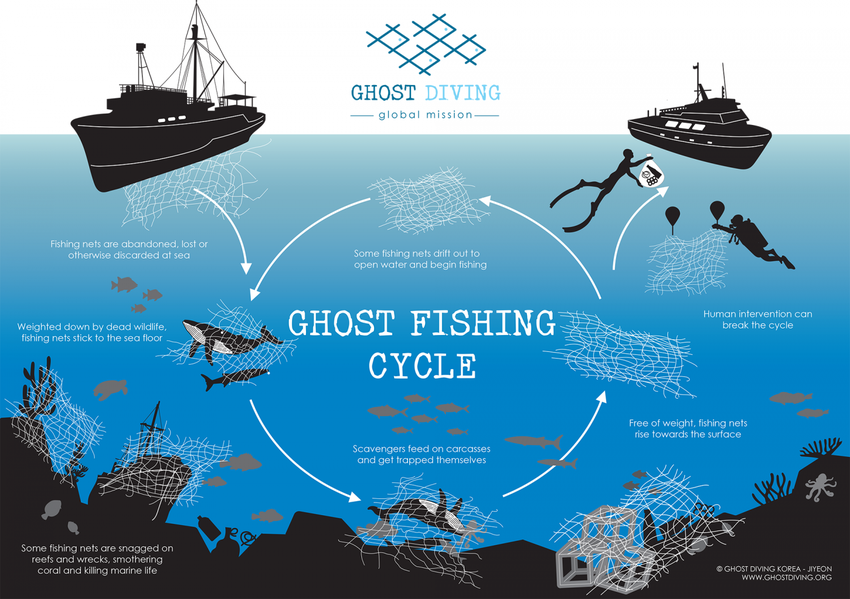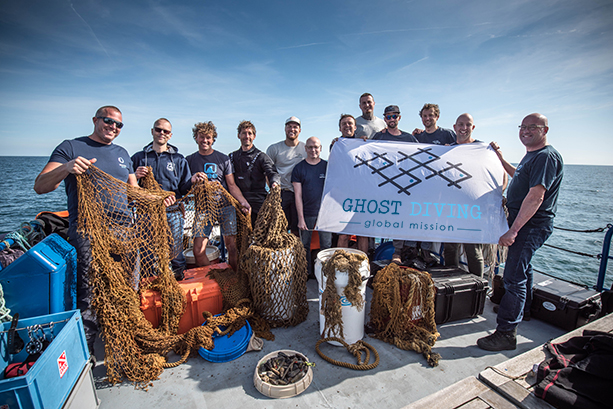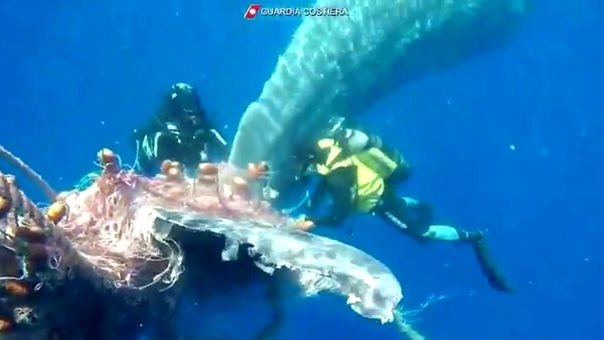- Inspiring People -
- 4mins -
- 1,033 views
Italian divers free sperm whale caught in discarded ‘ghost’ fishing nets
A sperm whale trapped in a fishing net off the coast of Salina, in the Aeolian Islands, was rescued and freed by the Cost Guard and a group of divers.
Sperm whale trapped in fishing net off the Aeolian Islands rescued by divers
A sperm whale trapped in a fishing net off the coast of Salina, in the Aeolian Islands, was rescued and freed by the Cost Guard and a group of divers. The biologist Monica Blasi, who runs a centre for the study of cetaceans and turtles on the Sicilian island, alerted the Coast Guard. The biologist and her collaborators were on their way to Stromboli to carry out the periodic inspection of the sea turtle nesting sites.
Six miles northeast of Salina she spotted a male sperm whale about 10 meters long on the sea surface with its tail fin completely wrapped in fishing net. The Coast Guard sent a rescue boat to the area and asked a team of local divers for help. The divers removed the net setting the animal free. The fishing net was heaved on board the military unit and was confiscated as it was used illegally to catch fish species such as tuna and swordfish.
The sperm whale was monitored at sea for a while and then was left free to join three others who had been waiting for it at a distance. See video below.
Source: WantedInRome

Ghost nets: the nets that keep on fishing
Just because a net is no longer being used doesn’t mean it can’t continue to catch things, wrote Charlotte Edmond, Senior Writer at the World Economic Forum.
And it’s a very good point. The unfortunate sperm whale above is just one very visible example of the damage discarded fishing gear is doing to the marine environment. Lost or abandoned nets get caught in rocks and coral, and continue to trap wildlife – from fish to turtles, whales and dolphins. This ‘ghost fishing’ often then attracts other scavengers, which then get trapped themselves.
- Annually, some 100,000+ whales, dolphins, seals and turtles get caught in nets, lines, traps and pots.
- It is estimated that somewhere between 600,000 to 800,000 tonnes of discarded fishing gear ends up in our oceans annually.
- This accounts for a large portion of the plastic waste in marine ecosystems.
Without human intervention and clean-ups, these ghost nets will continue to fish for hundreds of years because they are purposely made from materials which don’t easily break down.
The solution: make fishing a circular economy
The Global Ghost Gear Initiative has launched a best-practice framework for managing fishing gear, recommending solutions and approaches across the seafood supply chain, from gear manufacturers to fishers.
Other potential solutions include biodegradable fishing gear and designs that promote recycling and incentives to return gear at the end of its life. But illegal fishing remains a block to progress. Illegal boats sometimes dump equipment to avoid detection and fines.
The Clean up
There are a number of charitable organisations, such as Healthy Seas, which run clean-up operations and collaborate with fishers, fish farms and local communities to help prevent waste nets from ending up at sea.
Elsewhere, companies are working to turn marine waste into useful products once more. Aquafil uses nylon waste from fishing nets to create new yarn for the fashion industry.
Plastix Global recycles discarded plastics to be used in green products including phone cases, furniture and kayaks. And Bureo transforms discarded nets into sunglasses and skateboards.
Source: WorldEconomicForum



